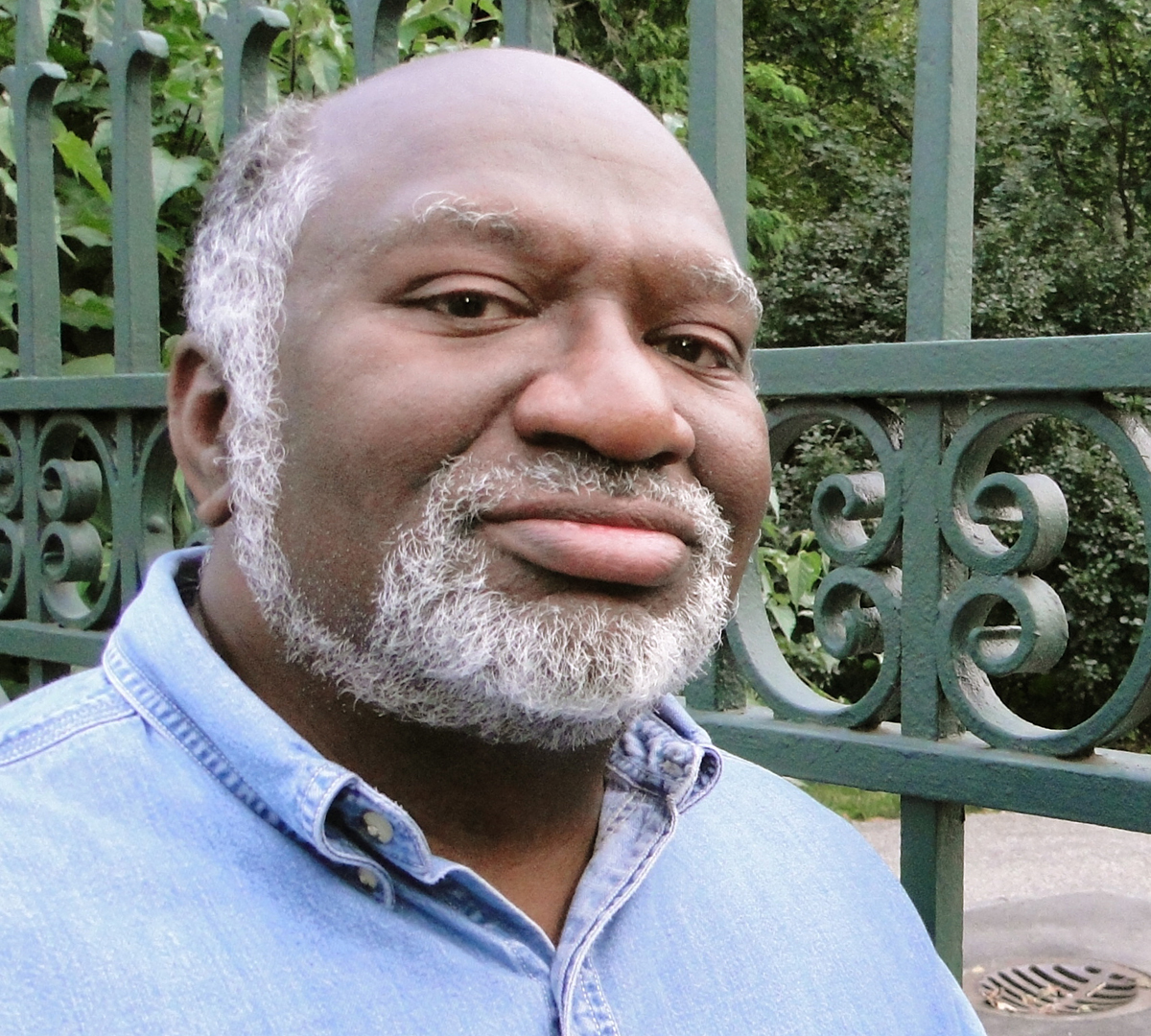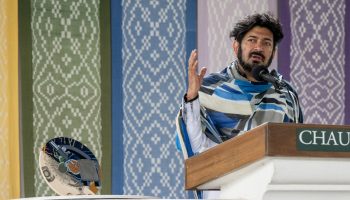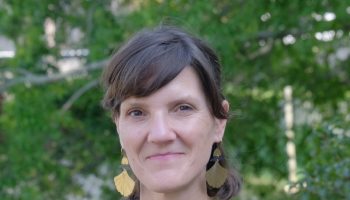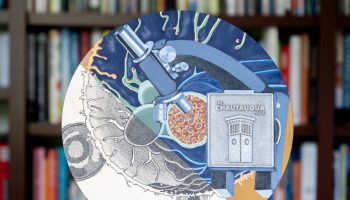Poet Charles Coe grew up in Indianapolis in the late 50s and early 60s, a time when he said the city lived under de facto segregation. Many places were inaccessible to him.
One place, however, became his refuge.
“The library was like my second home,” Coe said.
Coe is the author of Picnic on the Moon and is the poet-in-residence for Week Three at the Chautauqua Writers’ Center. His Brown Bag, “Libraries: A Love Story,” will be at 12:15 p.m. Tuesday on the front porch of the Literary Arts Center at Alumni Hall.
Coe said going to the library was a seminal part of his childhood, and it played a huge role in “shaping and supporting [his] interests in the word.”
“I would just wander the library and pick stuff off the shelf — no adult or teacher to say yes or no,” Coe said. “Some things I’d look at, and put them right back. Other times — I remember picking up The Good Earth by Pearl S. Buck. I’d never heard of the book, or her, but her name appealed to me. That’s an interesting name. So I sat and just went into another world. I sat there and read the book — just read it straight through — and then I checked it out, took it home and read it again.”
Coe said he still reads The Good Earth every few years. He said he isn’t sure if that early moment was when he decided he wanted to be a writer, but when he looks back, he realizes just how formative it was for him.
“If someone could do to me what was just done by putting these words on paper, that’s something I want to be involved with, too,” Coe said.
Besides his own particular library love story, Coe said he also plans to discuss the history of the American library system and how they are adapting to meet the needs of modern audiences.
That means more than just reaching out to readers, Coe said, because libraries serve many different groups. One example is the homeless community.
“Libraries are the frontlines around homeless issues in a lot of communities,” Coe said. “Homeless people will see the libraries as a shelter and a refuge. So libraries have the challenge of meeting everybody’s needs as much as they can — being welcoming to homeless people, but also keeping the library a safe and welcome environment for all who use it.”
Through their various activities — hosting author readings, providing internet access and serving as a public forum for discussion — libraries are becoming more like community centers. In many towns, libraries are “the only democratic public space available,” Coe said. It’s this distinction that makes the library an institution worth fighting for to Coe.
“We need to cherish our libraries; we need to fight for them,” Coe said. “We need to let our local politicians know that we’re not willing to see them plowed under just to add a couple of zeroes to the budget.”
Coe said when it comes to questions of budget cuts and government spending, libraries are often thought of as the first thing to go. But their value as an institution should help people reframe the question, Coe said.
“It shifts from ‘We can’t afford this’ to ‘We can’t afford not to have this,’ ” Coe said. “So how do we do it?”
Coe hopes his audience will come away with a renewed appreciation for libraries and eager to take action.
“The conversation needs to be grounded in [the idea that] our libraries are valuable and what we can do to keep as much of these resources available as possible,” Coe said.






